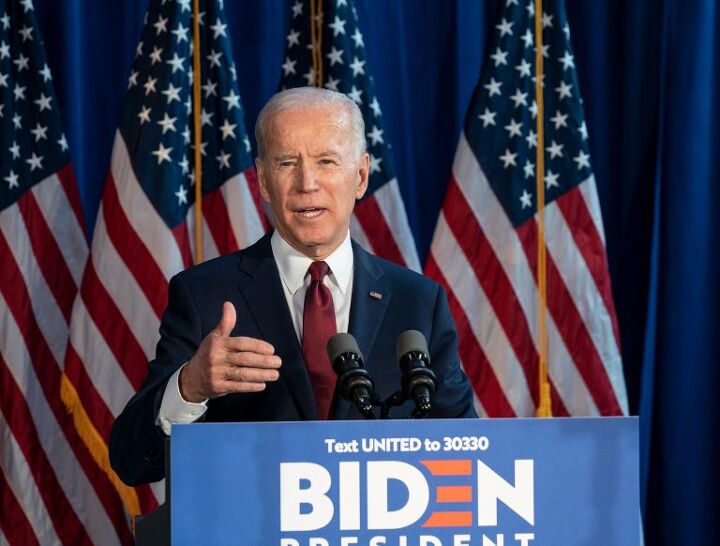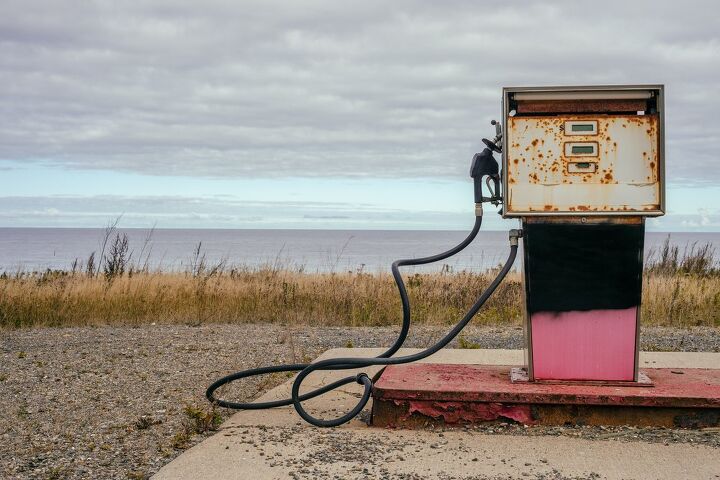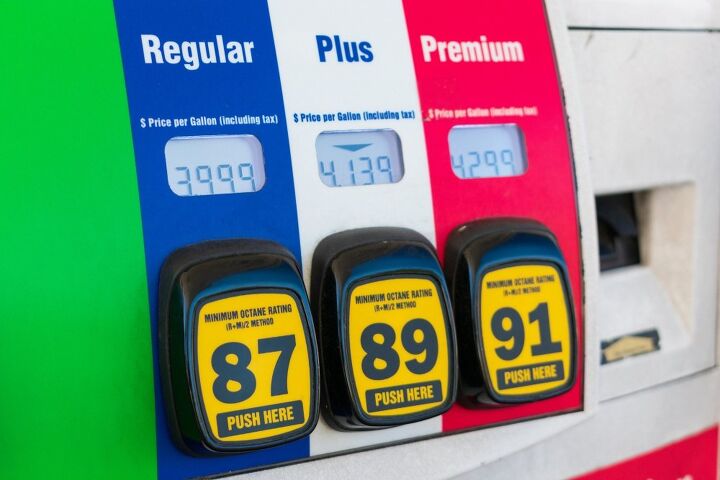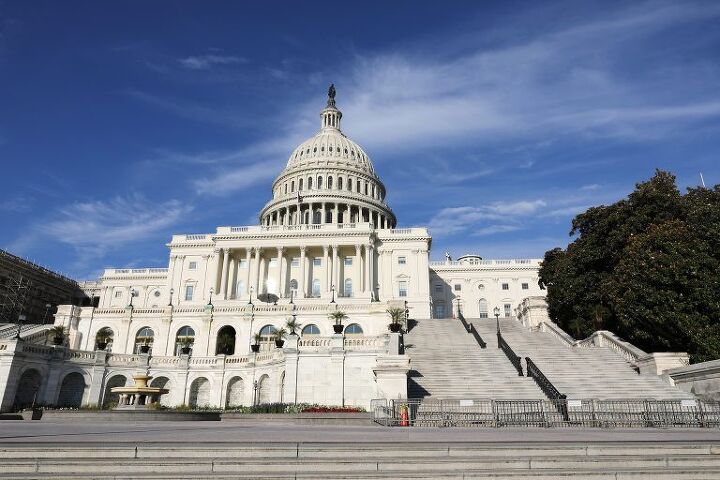#EnvironmentalProtectionAgency
Gas War: Biden Selects 'Obama All Stars' for Transportation Department, EPA
With America currently split between people arguing about how seriously the 2020 election needs to be investigated, there hasn’t been much in the news about cars beyond the omnipresent background hiss of manufacturers promoting green vehicles they have yet to build. That leaves us having to belly crawl through journalistic muck in the hopes of finding a morsel of useful information. Fortunately, we located a crumb worth saving in Joe Biden’s transition teams for the Environmental Protection Agency and Transportation Department.
A Biden administration means bringing back Obama all-stars in a concentrated effort to restore that era’s regulatory standards. That entails flipping just about every single initiative launched by President Trump, including the national fuel rollback that’s at the heart of the Gas War. Biden has also said he would reenter the Paris Climate Accords, gradually abandon fossil fuels, and “establish ambitious fuel economy standards” surpassing anything the nation has seen before.
Gas War: Inspector General to Investigate Fuel Rollback
Following requests from Senator Tom Carper (D-DE) for a formal investigation into whether the Safer Affordable Fuel-Efficient (SAFE) Vehicle Rules proposed by the Trump administration violates the Clean Air Act (or some currently undetermined regulatory requirement that might stop it from coming to fruition), the U.S. Environmental Protection Agency’s Office of Inspector General said it will indeed evaluate the emissions rollback.
As the ranking minority member of the Senate Environment and Public Works Committee, Carper’s opposition to the fuel rollback is to be expected. With politicians unwilling to find common ground and engage in good-faith discussions that might result in some amount of compromise in service to the people, opposition tactics have devolved into partisan lawsuits and trying to halt the new rules over technicalities.
Silver and Gold: Nevada Joins California in the Gas War
On Monday, Nevada Governor Steve Sisolak announced that his state will embrace California-crafted emissions rules that are at odds with the national rollback finalized by the Trump administration in March.
Officially, Sisolak said the rules would not require residents to abandon their current ride “or choose one that does not work for their lifestyle or business needs.” Nevada has, however, decided to adopt higher mpg standards, as well as the Golden State’s zero-emission vehicle (ZEV) rules that require manufacturers to sell a certain number of electric or plug-in hybrid models each year based on the total number of vehicles sold within the state.
Companies in compliance accrue ZEV credits, which can then be traded or sold to other manufacturers for money. As with the Corporate Average Fuel Economy (CAFE) system, those that cannot hit their targets (or afford to buy up credits) will be fined. Tesla actually used such arrangements to make $594 million off its rivals in 2019, with the prospect of things only getting more lucrative for the all-electric brand.
Gas War: States Sue Trump Administration Over Fuel Rollback
Following America’s fueling feud has shown your author that it’s less about finding a reasonable compromise that works for consumers, the automotive industry, and environmental activists, and more about perpetuating ideological wars that now seem to surround every topic filtered through the news media.
Encouraged by industry leaders just days after taking office, President Donald Trump made the fuel economy rollback one of his first initiatives. It wasn’t until March that the softened final draft emerged, however, and it won’t be enough to conclude the almost four-year battle. A collection of 23 states filed suit against the Trump administration’s easing of emissions standards on Wednesday. They argue that the rollback is illegal and based on bunk information.
While we’ve also been suspect of some of the metrics used to make the rollback look more desirable, fueling standards haven’t adhered to reality in some time. The Obama-era standards that would have seen Corporate Average Fuel Economy (CAFE) rise to 54 mpg by 2025 were deemed unsustainable by that administration’s Environmental Protection Agency (EPA) and the National Highway Traffic Safety Administration (NHTSA), but were put into play anyway.
Gas War: Senator Asks EPA Watchdog to Investigate New Fuel Efficiency Rules
Every time we think the United States’ fueling fracas had concluded, something new emerges to remind us that we’re utter morons. Despite the Trump administration finally wrapping up the fuel rollback of Obama-era emission standards on March 31st, Senator Tom Carper (D-DE) has sent another letter asking Environmental Protection Agency Inspector General Sean O’Donnell to look into the new rules.
Carper asked the inspector general last February to conduct an investigation into “potentially unlawful efforts and procedural problems” stemming from their implementation. His assertion is that the EPA was circumventing various procedural requirements and attempted to hide data that would have conflicted with some of the rollback’s claimed benefits.
Did it?
Gas War: EPA and DOT Release Final Draft of Fuel Rollback
The U.S. Department of Transportation’s National Highway Traffic Safety Administration (NHTSA) and the Environmental Protection Agency (EPA) released their final version of the Safer Affordable Fuel-Efficient (SAFE) Vehicles Rules on Tuesday. This will establish new targets for corporate average fuel economy (CAFE) and emissions standards for passenger vehicles from the 2021-2026 model years and just in the nick of time. The document had to be completed by April 1st, in order to leave sufficient time for the coming model year.
If you’ve been following the long and arduous process that brought us here, you’ll notice the document has changed slightly from previous drafts. The rollback still enacts the straightening of emission regulations but reels them back from the lofty goals set by the Obama administration. Annual increases in fuel efficiency standards will be set at 1.5 percent through 2026. Previous drafts had the Trump administration freezing efficiency requirements at 2020 levels.
U.S. Fuel Rollback Earns Pushback From Scientific Advisory Board
The Environmental Protection Agency’s (EPA) Scientific Advisory Board (SAB) is once again applying pressure on the Trump administration’s proposed fuel economy rollback. Similar to the complaints issued by a coalition of scientists back in March of 2018, the board expressed concerns that significant weaknesses exist in the analysis underpinning the plan that should be addressed before any rules are made final. A draft report was circulated earlier in the week, with the SAB scheduling a public meeting meeting on January 17th.
“[The] EPA always appreciates and respects the work and advice of the SAB,” the U.S. regulatory agency said in a statement. “When implemented, the [rollback] will benefit all Americans by improving the U.S. fleet’s fuel economy, reducing air pollution, and making new vehicles more affordable for all Americans.”
Bad Omen: Porsche Not So Happy With Abysmal EPA Assessment for Taycan
Just the other day, Porsche discussed how excited it was with the number of people placing reservations for its hot new Taycan EV. Unfortunately, that release appears to have been timed to draw attention away from the Environmental Protection Agency’s assessment of the Taycan’s “fuel economy” — a figure that was waiting around the corner to bash Porsche’s shins with a lead pipe.
When the German automaker announced the model, it claimed the electric sedan would offer ranges of up to 280 miles on a single charge using the European Worldwide Harmonised Light Vehicles Test Procedure (WLTP). The real number came in at 256 miles for WLTP. Since EPA estimates are typically much more conservative than WLTP averages, many expected maximum range to come down substantially once the United States finished testing … and come down it did.
The EPA calculated the 2020 Porsche Taycan Turbo as having a maximum range of 201 miles.
Report: Trump Administration Seeks to Soften Fuel Economy Rollback
One of the issues underpinning the gas war has been an inability for either side to compromise. Initially, it was the current administration complaining about California wanting special treatment. But the coastal state was quick to return fire, claiming that the White House never offered a valid compromise.
Eventually California extended an olive branch by suggesting it would postpone existing fuel economy mandates by one year, while attempting to lock automakers in via written commitments. But federal regulators said a singular national standard was needed, suggesting California had overstepped its authority by trying to rope in manufacturers.
However, EPA Administrator Andrew Wheeler came back this fall with claims of a revised plan that could actually be more stringent than originally presumed. While still a rollback, the new draft was said to close several loopholes the industry could use to continue their polluting ways. “In some of the out years, we’re actually more restrictive on CO2 emissions than the Obama proposal was,” Wheeler said.
New reports now suggest the EPA’s words are more than just noise.
California Governor Demands Investigation Into High Gas Prices
On Tuesday, California Governor Gavin Newsom responded to a new report claiming oil companies have been overcharging customers over social media.
“[California] drivers have paid an average of 30 cents more per gallon. There’s no identifiable evidence to justify that,” Newsom said. “I’m demanding an investigation. If oil companies are engaging in false advertising or price fixing — legal action should be taken.”
With California leading the charge against the federal government’s proposed fuel economy rollback, Newsom’s words are a bit of a faux pas. While we agree that companies should not be engaging in price fixing, California’s high fuel prices are largely its own doing. Newsom’s claims completely ignore this rather obvious fact — calling his ability to effectively negotiate the national fueling fracas into question.
Gas War: EPA Says California Has Worst Air Quality in the U.S., Threatens to Cut Highway Funding
With California gearing up for a legal battle against federal regulators eager to revoke its fuel waiver, we knew it wouldn’t be long before another salvo was launched in the gas war. However, the latest skirmish is a bit personal. According to Automotive News, Environmental Protection Agency Administrator Andrew Wheeler issued a letter to to California Air Resource Board chief Mary Nichols on Tuesday that framed the Golden State as unfit to dictate U.S. environmental policy.
The letter claims California has “the worst air quality in the United States” and a backlog of implementation plans to address ambient pollution standards surpassing every other state in the union.
California is scheduled to receive over $4 billion in annual federal highway funding this October. Now, the EPA is claiming the state failed to enforce the U.S. Clean Air Act. As a result, the Trump administration is threatening to withdraw those funds if the region doesn’t take immediately action on 130 different state implementation plans.
Gas War: EPA Head Suggests Fuel Rollback May Have Some Wiggle Room
Environmental Protection Agency Administrator Andrew Wheeler weighed in on the gas war this week, issuing some firm language on the matter during a visit to Chattanooga, Tennessee. His words were softer upon returning to Washington, where he reminded everyone that the EPA has made no formal decisions on the matter and suggested there could still be room for compromise.
Unfortunately, locating that happy middle ground has been a bit of a problem. Despite the fuel economy rollback’s status as a proposal, hard lines have been drawn in the sand between the Trump administration and California’s regulatory bodies. The Golden State’s compromise was to delay the Obama-era targets by one year. California also recruited municipalities, U.S. states, and automotive manufacturers to pledge their support of the plan, resulting in a handful of carmakers finding themselves on the business end of an antitrust probe.
Meanwhile, the Trump administration’s compromise has been nonexistent. Wheeler’s words suggest that might be because everyone is still making up their minds… but not before he gently razzed the West Coast for being shortsighted an singleminded.
Mild Misinformation About the Gas War: Governors Unite, Automakers Compromise
On Tuesday, 23 governors signed a joint statement urging the Trump administration to reconsider the proposed rollback of Obama-era fueling regulations. Led, unsurprisingly, by California Governor Gavin Newsom, the letter suggests a “common-sense approach” to national requirements with an emphasis on rising standards.
A minor update in the gas war to be certain — and yet annoyingly framed by a large portion of the media as a victory for California when the realities are far more complicated. To be frank, we’re getting pretty tired of these lopsided takes. This whole thing is a regulatory and political quagmire… on all sides.
EPA: Automakers Too Reliant on Credits for Emissions Compliance
The Environmental Protection Agency released its annual assessment of new vehicles yesterday, and it was filled with good news. On average, fuel economy continues to improve. Cars are not getting heavier, horsepower keeps going up, and every major manufacturer managed was in compliance with greenhouse gas standards through the 2017 model year. However, the EPA also said it’s concerned that manufacturers frequently tap into stored-up regulatory credits to make this possible.
“Most large manufacturers used banked credits, along with technology improvements, to maintain compliance in model year 2017. Three large manufacturers achieved compliance based on the emission performance of their vehicles, without utilizing additional banked credits,” the agency explained.
The ability to bank credits by over-complying in a given year is seen by some environmental groups as a way for corporations to shirk their responsibility to the planet. But EPA Administrator Andrew Wheeler’s concerns regarding the system rest elsewhere.
The Waiting Game: List of Automakers Standing in Line for EPA Approval Grows
As previously reported, vehicle certifications have been suspended during the current government shutdown. While this is normally a non-issue, the extended length of this federal deferment is starting to spook automakers.
Fiat Chrysler has already bemoaned the situation, as it’s currently waiting for the Environmental Protection Agency to approve its Ram Heavy Duty pickups. While the situation hasn’t become truly dire, other automakers have begun expressing concerns of their own.



























Recent Comments